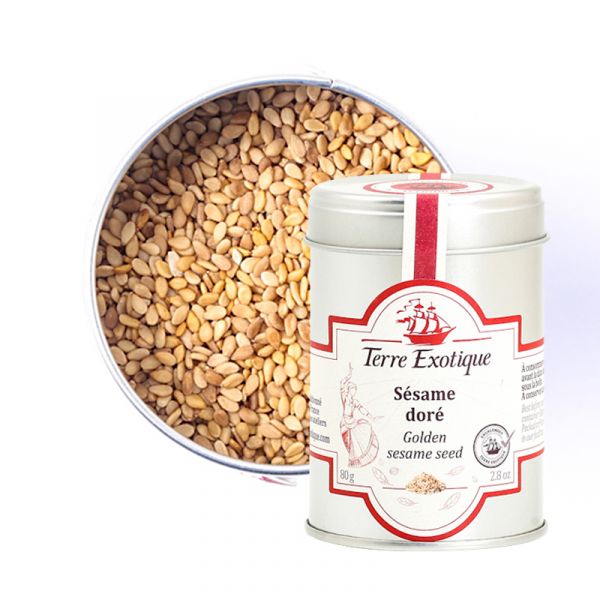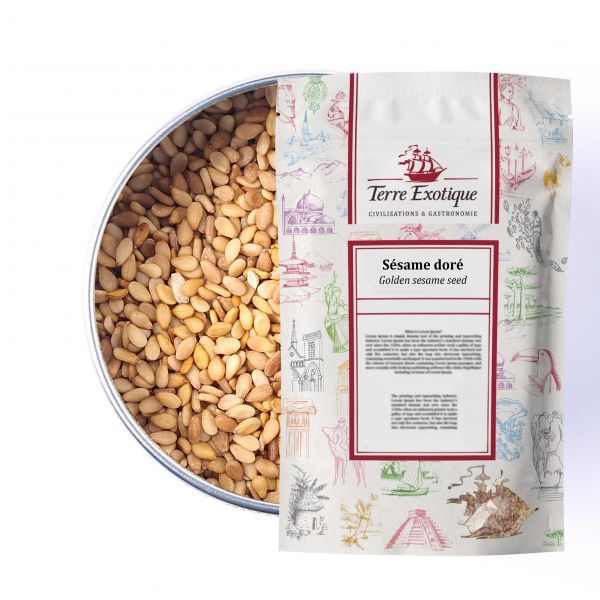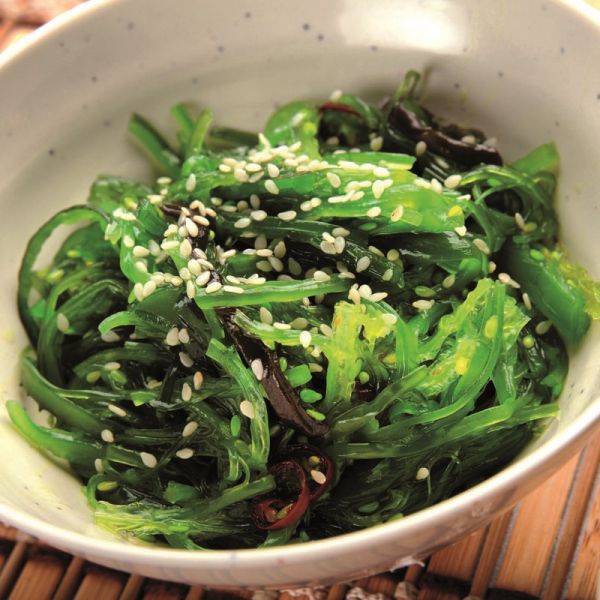





Using Golden Sesame Seeds in Cooking
Sesame seeds are a staple in Asian cuisine, particularly in Japanese cooking.
It's best to crush them roughly using a mortar and pestle. Add them at the last moment to preserve their intensity, crunchiness, and all their flavors.
How to Use Golden Sesame Seeds?
Here are some recipe ideas to incorporate golden sesame seeds into your cooking:
- Homemade Tahini: blend 200g of golden sesame seeds until smooth, then add 2 tablespoons of olive oil;
- Sesame Bread: sprinkle a tablespoon of sesame seeds over your bread dough before baking;
- Caramelized Sesame Chicken: after marinating your chicken pieces, roll them in sesame seeds with soy sauce and then pan-fry until golden;
- Sesame Parfait: sprinkle 50g of toasted sesame seeds over your ramekins and chill;
- Sesame Chicken Balls: after blending your chicken, add 2 tablespoons of sesame seeds and 1 tablespoon of soy sauce, then shape into balls.
- Lebanese Falafels: click here for the complete recipe
Aromas of Golden Sesame Seeds
Once toasted, golden sesame seeds release notes of hazelnuts and roasted cashews.
The Botany of Sesame Seeds
Sesame, or Sesamum indicum, is a plant in the Pedaliaceae family. This plant is widely cultivated in regions such as Africa and Asia for its seeds. Whether used raw, toasted, or ground, sesame seeds are very present in European, Asian, and American cuisine.
Sesame Seeds in History
Sesame seeds originated in the East Indies. 3,000 years before Christ, the Chinese used sesame seeds as ink by transforming them into oil and then burning them to produce a black color. Over time, sesame seeds have traveled the world to finally be used in kitchens in the form of oil, pastes, plain or flavored seeds.
| Allergen | Sésame / Sesame |
|---|---|
| Native country | Non UE |
| Genus and botanical species | Sesamum indicum |
| Ingredients | SESAME |
| Nutritional Info | VN Energie pour 100 g (energy for 100g) : 2670 kJ / 646 kcal VN Matière grasse (fat) : 56.1 g Dont acide gras saturés (of which saturated fat) : 8.1 g VN Glucides (carbohydrate) : 4.5 g Dont sucres (of which sugars) : 0.48 g VN Protéines (protein) : 25 g Vn Sel (salt) : 0.07 g |
| TRACES EVENTUELLES D'ALLERGÈNES | céleri, sésame, moutarde, fruits à coques. |
 Français
Français 
